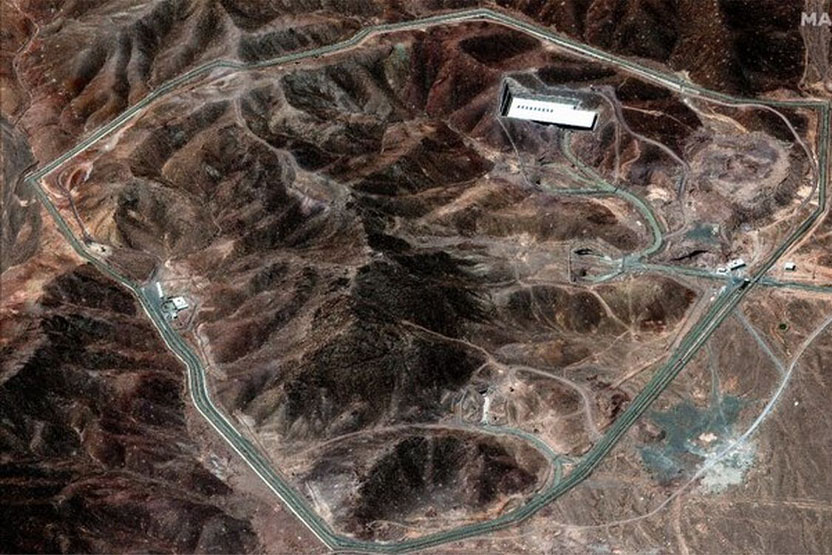
Following a surprise Israeli attack on Iran, the Director General of the International Atomic Energy Agency (IAEA) issued a stark warning on Friday about the potentially catastrophic environmental and human consequences of military strikes on nuclear facilities. The warning came after Israel launched a major assault on Iran’s nuclear energy infrastructure, reportedly damaging the country’s largest uranium enrichment site.
Claiming Iran was building a nuclear bomb, Israel justified the strikes on urban areas across Tehran and beyond — despite repeated reports from the IAEA and U.S. government asserting that there is no evidence Iran is pursuing nuclear weapons. The attacks have reignited serious concerns about the environmental risks of targeting nuclear sites.
“This development is extremely concerning,” said Rafael Grossi, Director General of the IAEA. “I have repeatedly stressed that nuclear facilities should never be targeted under any circumstances, as this can harm people and the environment. Such attacks have serious implications for nuclear safety, security, and safeguards, and affect both regional and international peace and stability.”
Grossi reiterated the IAEA’s longstanding position that “armed attacks on nuclear facilities can result in the release of radioactive materials with severe consequences within and beyond the borders of the targeted country.”
As of Friday evening local time, Iran reported no increase in radiation levels at the Natanz enrichment site, according to Grossi. Iranian officials also stated that the Isfahan and Fordow nuclear sites were unaffected by the Israeli strikes.
However, reports indicate that both of Iran’s main uranium enrichment facilities — Fordow and Natanz — were targeted during the Israeli airstrikes in the early hours of June 13. The attacks sparked widespread anxiety about the possibility of radioactive contamination. Iran stores enriched uranium in various concentrations in sealed containers, in addition to the fuel cycle infrastructure, centrifuge cascades, and other equipment — making leaks a real possibility.
What is believed to be the “first wave” of attacks included at least two phases targeting the Natanz uranium enrichment site, specifically infrastructure systems such as assembly buildings, electrical and ventilation systems.
On Friday, Grossi emphasized: “Amid ongoing military operations and rising tensions, it is clear that the only sustainable path forward — for Iran, for Israel, for the entire region, and for the international community — is one based on dialogue and diplomacy to ensure peace, stability, and cooperation.”
He added: “Israel’s bombing of Iran’s nuclear facilities is a dangerous and escalatory move by a nuclear-armed state, threatening to unravel the delicate negotiations surrounding Iran’s nuclear program.”
The deadly Israeli assault came just one day after the IAEA Board of Governors, backed by the United States, passed a resolution accusing Iran of failing to meet its obligations under international nuclear safeguards.
Iran responded firmly, condemning the resolution as politically motivated and stating it had “no choice but to respond.” It also announced plans to establish “a new enrichment facility in a secure location.”
Contrary to Israeli claims that Iran is rapidly progressing toward building a nuclear weapon, U.S. intelligence agencies maintain that Iran is not currently constructing a bomb — a conclusion consistent with Tehran’s repeated public declarations that its nuclear program is intended solely for civilian energy purposes.
Following the Israeli strike, Iran formally requested an emergency meeting of the IAEA to address the attacks. Reuters reported that several IAEA member states, including Russia, China, and Venezuela, supported the request.
Melissa Parke, Executive Director of the Nobel Peace Prize-winning International Campaign to Abolish Nuclear Weapons (ICAN), issued a statement Friday, calling the Israeli strike “a dangerous and escalatory act by a nuclear-armed state that threatens to derail ongoing negotiations over Iran’s nuclear program.”
Parke urged: “Israel and Iran must immediately join the United Nations’ Treaty on the Prohibition of Nuclear Weapons. Doing so would require Israel to dismantle its nuclear weapons program and Iran to maintain its current nuclear safeguards under IAEA supervision. Only through inclusive, negotiated solutions can we truly eliminate the threat of nuclear weapons and achieve their total abolition.”
Despite these calls for restraint, fears of radioactive contamination remain high. When the phrase “nuclear incident” is mentioned, public attention often turns to catastrophic reactor meltdowns like Chernobyl or Fukushima, where radioactive elements such as cesium-137 and iodine-131 were released and spread across vast regions, even thousands of kilometers away.
However, enrichment facilities like Natanz and Fordow present different dangers, particularly the risk of exposure to uranium hexafluoride (UF6) — a compound used in uranium enrichment. If released through an explosion or sudden leak, UF6 quickly vaporizes under ambient pressure and temperature and decomposes into two highly dangerous substances:
UO2F2 (Uranium oxyfluoride) — a fine powder that can penetrate the lungs.
HF (Hydrogen fluoride gas) — extremely corrosive and toxic upon contact.
Nonetheless, the spokesperson for Iran’s Atomic Energy Organization announced that a limited amount of radioactive contamination had been detected inside the Natanz facility, but it was confined to internal spaces and not significant enough to escape the compound.
Still, further Israeli strikes on these facilities remain a credible threat. Michael “Yakhil” Leiter, Israel’s ambassador to the United States, told Fox News on Friday: “The entire Israeli operation hinges on Fordow. To complete the mission, Fordow must be destroyed.”
Such statements, and Israel’s apparent efforts to involve the United States in the conflict — especially given its limited military capabilities to fully strike fortified sites like Fordow and Natanz — underscore the recklessness of Tel Aviv’s decision-makers. This irresponsibility began with the aggressive attack on Iran and the dismantling of global diplomatic efforts and now threatens to escalate into irreversible environmental and human catastrophes.


Comment
Reply